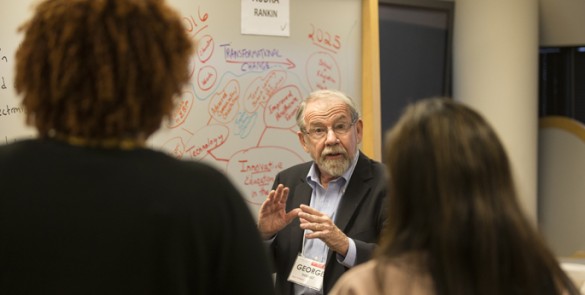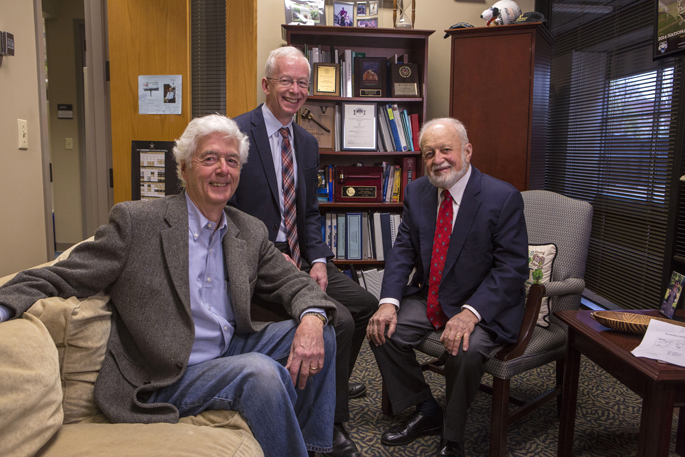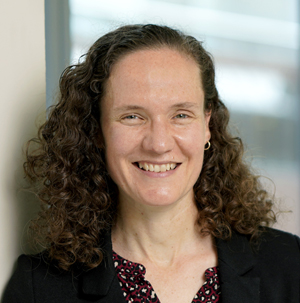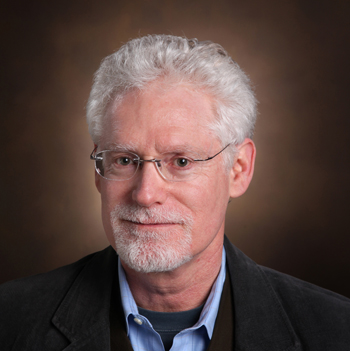
Vanderbilt University School of Medicine recently held the first in a series of six regional conferences on innovations in graduate medical education (GME) sponsored by a $50,000 grant from the Macy Foundation.
The two-day meeting, “GME as an instrument of Change to Improve the Health of Systems, Populations and Society,” focused on pioneering GME innovations from the Southeast and brought together groups that previously have not been directly in conversations about GME, said Don Brady, M.D., senior associate dean for Graduate Medical Education at Vanderbilt.
“We brought together an incredibly broad collection of people who have a stake in how we train physicians, including deans of GME, public health officials, state officials, patient advocate groups, nursing, residents, institutional leaders, chief medical officers and representatives from the VA, HRSA, CDC, HHS and ACGME.
“This breadth of diversity has rarely been assembled to talk about GME and how we can innovate in the GME space in order to drive system improvement,” said Brady.
There were more than 90 attendees representing 13 southern states, from Maryland down to Florida and west to the Mississippi River, said Brady.
“Our theme centered on innovations addressing health care disparities, the use of reflective data to drive changes and state-level funding initiatives for GME,” he said. “The real goal, though, is using such innovations as a lever to improve the health of people in the Southern region.”
Additional conference goals included encouraging new partnerships in the hopes of sharing the most current innovations as well as brainstorming new approaches on how best to prepare the next generation of physicians, while realizing that innovations in GME also can help drive system transformation.
“The Macy Foundation firmly believes that there is a lot of innovation going on in graduate medical education around the country,” said Brady. “But that information is not well known because it is not being disseminated. These innovations can help improve systems of care and help improve our medical centers in ways that we are not recognizing because we are not aware they exist.
“The health care system is changing and we have to have our residents and fellows keep up with the changes,” he said. “Not only are the changes in how we deliver care to the patients, but also in how we think about not just individual patients but populations and communities of patients and how we address disparities in health care.
“As Graduate Medical Education is that time in the training of a physician where they focus on their chosen field, it is a key time to hone their skills. It is probably the most critical point in their training.”
The Macy Foundation supports projects that broaden and improve health professional education.
Founded in 1930, it works to improve health care in the United States and recently announced the launch of the Macy Regional Conferences on Innovations in GME to highlight innovations in the way doctors are trained.
Vanderbilt was the first site, with five other forums planned for MD Anderson Cancer Center and the University of Texas System, the University of California, San Francisco, the University of Washington, Partners Healthcare System and the University of Michigan.
George Thibault, president of the Macy Foundation, said his organization wants to capitalize on the vast amount of energy surrounding ways to reform and improve today’s GME system.
“The meeting held at Vanderbilt was a great kickoff for our series to highlight the importance of innovations in GME,” Thibault said. “There was a lot of creative energy and a very diverse group of people that gave an optimistic picture of what graduate medical education can be.
“We want that excitement to spread as we attend the other conferences scheduled through May.”
At the culmination of the series, the Macy Foundation will issue a final report that showcases innovations and promising models related to the structure, content and financing of GME programs.















